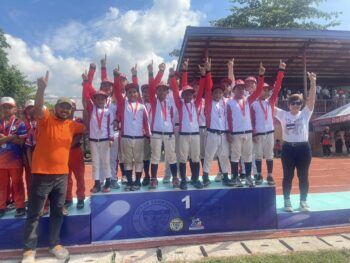By Rick R. Flores
WATER spinach (kangkong) and mudfish (dalag) abound below our humble house along the wetlands of Lustre in Zamboanga City. Lustre was a small sitio mostly dwelled by Chavacano and some Bisaya from Cebu and Pagadian. A minor population of Tausugs also lived there. The vast expanse of kangkong or tangkong as Chavacanos call it was the main source of livelihood among the residents. During rainy season, Lustre would be swamped by local compradors of tangkong. In the 80s, Lustre was just a simple community where the rich had much and the poor had less. But there was unity, there was never a distinction whether you are a Christian or Muslim.
Life was simple yet harsh then. My mother would wake up early in the morning, at around 4 a.m., and would rush to the wet market in Sunken Garden to buy kakanin which she would later sell to our neighbors. Breakfasts would mean limited rice, ginisang kangkong, and pescao seco (dried fish). As elder of my siblings, I have to rise early and cook. Mamang would arrive around 6 in the morning and share breakfast with us. After breakfast, she will tour the barter trade area and some other places in search of women—and men—wanting to have their fingernails and toenails manicured. Life was not that easy as we have to grapple with poverty. My consciousness then was limited to understanding why we live in this place while our father was away supposedly working “abroad” in Sabah, Malaysia.
Years went by and our neighbors were living in lofty houses while our humble house remained as it was. By that time, poverty became clearer to me. It seeped into my consciousness. By that time, there was no “nationalism” to speak of, no powerlessness to bemoan, no structural violence to protest.
What I had—to be proud of—was my mother.
Fortitude, perseverance, patience, love were all what my mother imparted to me and to my brother and sister. In 2006 I had the chance to revisit Lustre. After 30 years our humble house had vanished. Lustre was filled with filth and drugs. My childhood friends were gone and most of my relatives were dead.
What I remember about Lustre is that it was the place where I learned to play the guitar and mastered Paul McCartney’s songs. It was also the place where dogs—courtesy of my Lolo Jorge—were favorite pulutans. Because I was suffering from asthma then, Lolo Jorge would set aside a dog’s liver for me—roasted in a way like pork barbecue. I wonder if eating a dog’s liver have healed my asthma because until now, I rarely succumb to difficulties in breathing. Lustre was also the place where playing chess was popular and where people settle disputes through fistfights. It was also in Lustre where bahalina was common among tanggeros.
I managed to walk around Lustre and realized communities alter and change. There was nothing to complain except that life teaches us in ways that are unimaginable.
And the unimagined took place on the 9th of September 2013.
As a reiteration, I witnessed the Rizal Alih military overtures in the early 80s, the massive displacement of local residents of Lustre after two irreconcilable clans violently claimed their individual family’s amor propio in 1988, and armed activism in Isabela City, Basilan in 1990 resulting from alleged corruption of some officials of a state college situated in a coastal barangay where the infamous ambush of a Marine barracks took place.
In the 80s, full-geared military, especially Marines, was a common sight especially before entering the village of Rio Hondo which lies just beside my former alma mater, the Zamboanga State College of Marine Sciences and Technology. Now and then even during school days, me and my schoolmates would rush near the college gates once Army tanks and a battalion of government soldiers uniformly queue to conduct “clearing operations” in Rio Hondo. Military visibility was more pronounced after People Power and during the challenging stages of negotiations with the Moro National Liberation Front but there was limited consciousness and understanding amongst us about the historical struggles of the Bangsamoro, why the massive and heavy presence of state forces, and unabated proliferation of small weapons in our neighborhood.
“People don’t deserve being displaced and forced to leave their homes due to armed confrontation between forces that draw out their victories from military might. Civil liberties, freedom of movement, and human protection are guaranteed in times of conflict and must be observed, equally provided and ensured by combatants but what we saw in very disturbing circumstances in Zamboanga City are blatant disregard and violation of human rights. The people of Zamboanga and Basilan have suffered much; they don’t deserve this war, this is not their war!”
I refuse to forget the landscape filled with water spinach and dalag. A place where simple dreams and hopes for better future become more necessary day to day, from one rainy season to another. “Lustre is now in ashes,” my Aunt Celia told me over the phone last Monday. The sons and daughters of Lustre may be gone but their spirits continue and shall continue to defy the harsh conditions and difficult testaments of our time like the defiant water spinach and dalag.
(Rick R. Flores is a Davao City-based freelance development consultant and journalist.)






